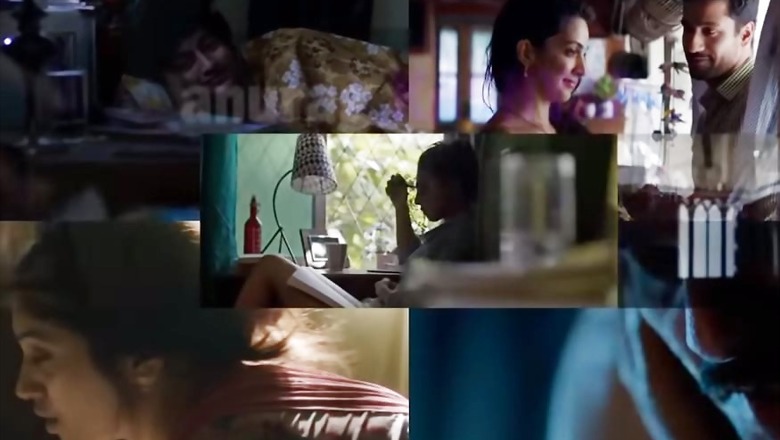
views
Carrying forward the legacy of Bombay Talkies, four of Hindi cinema's finest filmmakers combined their talents once again, this time to celebrate the power of desire. Netflix's Lust Stories brings together Anurag Kashyap, Zoya Akhtar, Dibakar Banerjee and Karan Johar to tell the stories of desires and Hindi cinema's taboo emotion - lust. The entire film is divided into four parts, each directed by one director, and each having a different flavour and take on human emotions, some blurring the line between love and lust, with others defining the line.
The first story is by Anurag Kashyap, starring Radhika Apte and Sairat actor Akash Thosar. Radhika plays a professor who de-virginises her student and then spirals into a confusing paradox of claiming her territory while keeping her independence. The entire story lies on the shoulders of both the talented actors and they do not disappoint. The crux of this 'psychotic lust story' is confusing emotions, possessiveness, major separation anxiety and of course, humour. Trust Kashyap to bring you the most uneasy concoction and still make you enjoy it thoroughly.
The second story by Zoya Akhtar, starring Bhumi Pednekar and Neil Bhoopalam is a more subtle take on human desires in a society divided by class. The socio-political disadvantages have been shown beautifully in the short, with both the classes blurring the difference when in bed. What stands out in this story is the stillness and use of silence and the minimal dialogues. The entire gamut of emotions is conveyed through Bhumi's expressions, who does her job well.
The third story by Dibakar Banerjee is about a woman and her choices. What appears to be a story of finding love and companionship at first, turns out to be a powerful statement about a woman's independence and her own choices. Starring a terrific cast in Manisha Koirala, Sanjay Kapoor and Jaideep Ahlawat, the story is of a woman who is defined by one role or another by her husband, her lover and society. How she challenges the shackles and put herself and her desires first is worth watching.
The fourth and final story by Karan Johar turns out to be the most entertaining. Without dwelling too deep into the finesse of filmmaking, Johar very promptly presents a shade of lust, well known and accepted in Indian society. Set in the context of arranged marriage, the story explores how two naive humans learn and explore the basics of sex in completely different manners. Starring Vicky Kaushal, Kiara Advani and Neha Dhupia, this story is all about embracing inner desires, unapologetically. The key point in this one is definitely the climax (quite literally), where Johar tunes it with a scene from one of his most popular films.
Overall, while the intention of the film is rough and raw, as desired, it somehow lacks an on-point execution. Something similar was finely executed in Alankrita Srivastava's Lipstick Under My Burkha, and so Lust Stories feels bold but underwhelming at certain points. Two key highlights of this cocktail of desires are Radhika Apte's phenomenal performance as an anxious, independent yet possessive professor and the way her misery and confusion has been present needs an applaud; the second is Karan Johar's ability to add drama and commercial flavour to the most taboo topic in an Indian household - sex. Indeed, Johar has always kept a signature of sexuality in his every film, from Ms Branganza in Kuch Kuch Hota Hai to Tanya Israni is SOTY, characters who are unapologetic about their desires and know the power of their sensuality. Neha Dhupia, plays a similar token character in his short as well, however, unlike his full feature outings, this one is subtle and organic, thus more relatable.
Go for Lust Stories as it explores the less charted plane of female desires and the acceptance of lust, from filmmakers of an industry which relies more on romance and love, in every form. Mind you, the film will make you question the intermingling realms of love and lust, maybe not in the most flattering way, but in an attention-grabbing way, for sure.















Comments
0 comment